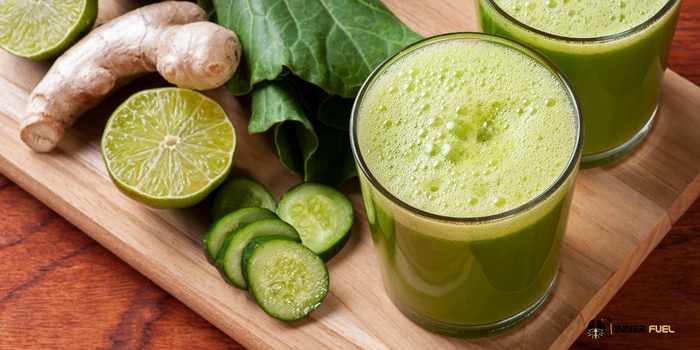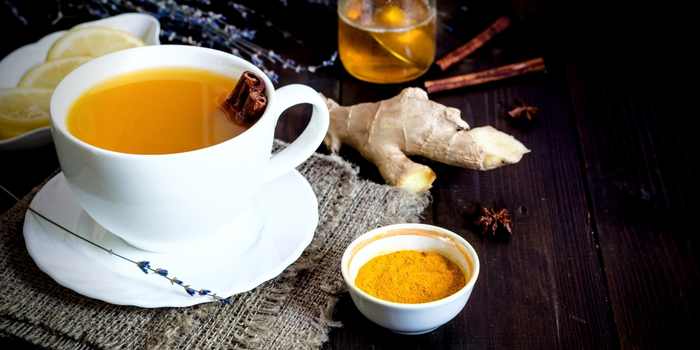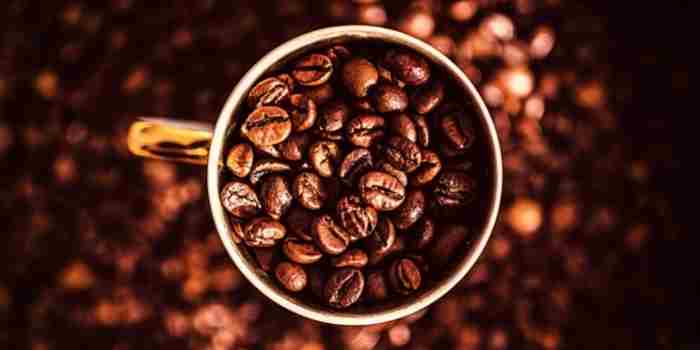
Water is your body’s primary form of hydration, but it is not the only thing you may drink. Some beverages can be helpful for the brain, cognition, and focus. Here are my top three picks.
For example, Black and Green Tea have unique amino acids called L-theanine. Why is this important for brain health?
L-theanine has been shown to reduce anxiety and boost dopamine production. Combined with caffeine, it’s a potent method to increase brain function while reducing jitters from other caffeinated beverages. However, Black tea’s theanine component can effectively cross the blood-brain barrier, giving it great effectiveness with just one cup.
In this article, we will discover three beverages that can be good for our brain health.
Water: This Is How Your Brain Feels About Dehydration
Add this number to the fact that our brain is around 75% water—and must remain at 75% water to operate efficiently.
Even dropping 1% of one’s body weight due to water loss can negatively impact cognitive performance, affecting memory, mood, mental vigor, and attention.
If you lose 2% of your body weight due to dehydration (still considered “moderate”), your brain will become dull.
- You will experience reduced response times, issues with short-term memory, mental tiredness, disorientation, anxiety, and a depressed mood.
- Drinking insufficiently depletes cognitive function, requiring your brain to work more to comprehend the same amount of information.
- Mild dehydration can also impair motor coordination, raising your risk of an accident—a terrifying prospect whether you’re driving, walking, or working in manufacturing or transportation that requires constant attention.
- Worse, studies reveal that once dehydrated, the impacts on mood continue even after being fully rehydrated.
Dehydration also causes the brain’s valuable gray matter to shrink.
Gray matter is a term used in neuroscience to refer to the cerebral cortex, the brain’s outer layer covering the surface of both hemispheres.
The importance of gray matter has been highlighted recently due to its relation to cognitive functions and intelligence. (source)
Increasing the amount of this type of tissue in the brain improves its overall ability to think, reason, and remember.
Unsurprisingly, well-hydrated persons do better on cognitive tests, with greater memory, motor abilities, mental vigor, alertness, and focus.
Our brain is 75 percent water—not 75 percent soda, juice, milk, coffee, iced tea, wine, beer, or diet soda. Water is the first and best choice for optimal brain hydration. And since our brain has no way of storing water, you need to continually drink it to rehydrate the brain.
Black Tea, And Green Tea ( Black Tea Also Helps Gut )

I always drink Turkish Black tea. Not only do I enjoy the tea flavor, but I also find the act of brewing and drinking it to be quite calming, which is perhaps why it has been a ritual in parts of Turkiye for generations.
- Karadeniz black tea, peppermint, and decaffeinated cinnamon spice black tea are my favorite beverages. Tea also has several brain-boosting properties. According to animal studies, black tea polyphenols function in weight reduction through altering gut microbes. (source)
- Drinking half a cup of green tea every day may reduce the incidence of dementia and depression while decreasing the body’s production of the stress hormone cortisol. According to studies, people who consume green tea daily can reduce their sadness by up to 21%—the stress-busting equivalent of 2.5 hours of exercise each week.
- Tea’s remarkable cognitive benefits can be attributed partly to epigallocatechin gallate (EGCG), an antioxidant found mostly in green tea but also in black, white, and oolong tea. (source)
- EGCG has been proven to create brain waves linked with relaxation and alertness while protecting cells from oxidative stress. Tea, particularly green tea, has been demonstrated to help prevent various illnesses, including cancer, heart disease, diabetes, obesity, and neurodegenerative disorders such as Alzheimer’s.
Not finished. According to new research, drinking green, black, and oolong tea may help you delay cognitive deterioration by up to 50%. 28 Green tea has also been found in studies to reduce anxiety, increase memory, sharpen attention, and improve general brain function and connection.
Related: The Fastest and Most Effective Way to Get New Brain Cells
L-Theanine Signaling Creates New Brain Cells
L-theanine, an amino acid that helps calm the central nervous system, is also found in green, black, white, and oolong tea. And while they don’t contain nearly as much caffeine as coffee, these teas do include a little amount of caffeine, which helps to promote alertness and improve mood.
The good news about L-Theanine is that it can cross the blood-brain barrier, quickly reaching the brain. Also, administration of L–theanine induced upregulation of hippocampal BDNF, which helps to improve get new brain cells. (source)
According to a study, herbal teas also protect the brain, capable of combating neurodegenerative conditions such as Alzheimer’s. Nevertheless, avoiding adding milk, sugar, or artificial sweeteners to tea is best for maximum health benefits because sugars itself suppress the production of the BDNF and alter the gut microbiome.
Note: Normally, caffeine helps improve brain cell formations, BDNF as well as dopamine sensitivity via D1/D2. However, in combination with L-theanine, you might get cognitive effects because L-theanine lowers caffeine’s anxiety and jittery effects.
Green, and Black teas polyphenol epigallocatechin-3-gallate (EGCG) is an efficient antioxidant with neuroprotective properties
Coconut Water

Consider coconut water nature’s first sports drink. The beverage contains electrolytes without synthetic sugar, artificial colors, and other additions in commercial sports drinks. It is found naturally inside the coconut fruit. What’s good about that is coconut water also has a good amount of potassium which helps nerves and muscles.
Your brain, as part of the neurological system, requires potassium. The mineral allows brain cells to interact with one another and with cells throughout the body. Muscles might become weak if you do not have enough in your body. You may have fatigue, cramping, or constipation. (source)
Coconut water also includes antioxidants such as vitamin C, which can aid in the battle against oxidative stress. One of vitamin C’s most well-known activities is the control of neurotransmitter biosynthesis, which includes the catecholamines dopamine, norepinephrine, and epinephrine.
The dopamine-hydroxylase, which converts dopamine to norepinephrine, requires vitamin C as a cofactor that helps better cognition, mood, and focus. (source)
According to a study, the drink can also decrease blood sugar, blood pressure, and harmful cholesterol and triglycerides.
I think coconut water tastes delicious, providing a flavor boost without the need for sugar or other sweeteners.
Green Juices

Green juice is created by juicing entire, fresh green vegetables. It’s a nutrient-dense beverage since it’s high in vitamins, minerals, antioxidants, enzymes, and phytochemicals.
Green juice is also high in chlorophyll, the pigment that gives plants their green color, which aids in detoxification, oxygenation, and inflammation reduction.
Your body also absorbs micronutrients better in green juice than in the identical green veggies before they are juiced. Because crushing vegetables into juice breaks down cell walls and starches, nutrients are more easily absorbed.
But Lacks Fiber
Furthermore, green juice lacks fiber, which can bind to micronutrients and cause them to flow through our digestive tract without being absorbed. You should not use green juice in place of consuming green vegetables. Instead, consider green juice when you want something tasty, hydrating, and incredibly nutritious.
Every day, I drink at least sixteen ounces of green juice, which I create at home in my juicer.
You can use green vegetables such as kale, celery, spinach, swiss chard, arugula, broccoli, wheatgrass, parsley, cucumber, and cabbage. They are also high in magnesium which helps mitochondria and brain chemicals; magnesium plays an essential role in nerve transmission and neuromuscular conduction. (source)
While most of my juice is veggies, I will include a portion of fruit: blueberries, raspberries, strawberries, mango, pineapple, peaches, pears, or apples. Here are a few additional juicing tips: Make sure your juice has more green vegetables than fruit, which contains more sugar and calories.
Drink your juice within thirty minutes of pressing to avoid nutritional loss due to oxygen exposure. To guarantee pesticides and other contaminants are not present in green juice, wash all produce before juicing and use only organic fruits and vegetables. To get the most diversity of micronutrients:
- Switch up your fruits and vegetables.
- Purchase a juicer. While you can use a blender, it will not remove fiber or pulp, so your product will be pureed rather than juiced.
- When purchasing green juice from the outside, ensure that the juice is freshly cold-pressed for each order and that there are no added sugars, sweeteners, or other fillers.
Green juice is also good for hydration and alkaline the body, which gives more oxygen to the cells and the brain.
Turmeric Tea

This yellow spice is a key ingredient in curries and gives tea an earthy taste. Turmeric has long been used in Chinese and Indian medicine. Due to its anti-inflammatory effects, turmeric benefits skin, joint, and digestive ailments.
Researchers are currently investigating its brain-protective benefits and if it might boost memory and halt the course of Alzheimer’s disease.
Taking a curcumin-enriched iron supplement for six weeks can significantly increase the amount of brain-derived neurotrophic factor (BDNF) required for optimal neuronal activity and energy balance and has been associated with increased cognitive performance. (source)
Curcumin improves memory, attention, mood, and amyloid and tau signals in the amygdala and hypothalamus, which affect memory and emotion.
Related: The Ultimate List of Brain Health Do’s and Dont’s
Golden Milk Is Amazing
Golden milk is a hot or cold drink made with turmeric, ginger, cinnamon, honey, and your choice of milk. Golden milk’s anti-inflammatory effects may help prevent and fight cancer, control inflammation, and manage weight.
Golden milk is neuroprotective and improves learning, spatial memory, and working memory. Data suggest it prevents and treats Parkinson’s, Alzheimer’s, Huntington’s, and multiple sclerosis. (source)
Energetic Formule: AFTERNOON KICKSTARTER
This juice is a condensed version of my Morning Boost for those afternoons when I’m running about and need a quick, simple energy boost.
Juice 4-5 stalks celery, 1-2 stalks red kale or pacific kale, add spirulina, and one entire Bosc pear to prepare at home. Enjoy!
How About The Coffee?

Coffee includes caffeine, and we feel more awake and energetic after drinking it.
Caffeine stimulates noradrenaline neurons and appears to influence dopamine release locally.
Yet, BDNF levels can also be raised by drinking coffee. There is strong scientific evidence that caffeine may help preserve brain cells and reduce the chance of acquiring neurodegenerative disorders such as Alzheimer’s and Parkinson’s because Hydrocinnamic acids and polyphenols are two of the most potent antioxidants found in coffee which neuroprotective properties.
Combined with caffeine and polyphenols, a single research trial was discovered to considerably improve age-related memory deficits by raising levels of the hormone BDNF.
While I enjoy the antioxidant advantages of coffee, the benefits of coffee come if you use it moderately, even a small amounts.
High caffeine can cause overstimulation in your body and brain, leading to decreased cerebral circulation, gray matter shrinkage, decreased neurogenesis, and poorer executive function and memory because of the high amount of cortisol and adrenal fatigue.
Do you know humans have more grey matter than animals? It is not just because we are smarter but also because we have more neurons in our brains.
More information: Do Animals Meditate?
Another problem is overconsumption Coffee interferes with one of the most important things the brain requires: sleep.
According to reports, even if you limit your coffee drinking to the morning, it might still disrupt your sleep pattern.
Also, that’s a lot of caffeine for the body and brain, which causes internal stress and anxiety. Why? Caffeine depletes GABA levels. Because of this, coffee drinkers are more likely to experience anxiety, irritability, panic attacks, and other symptoms of nervous tension. (source)
Roasting coffee can also produce acrylamide, a chemical that, in high doses, can affect the neurological system.
Acrylamide is a toxic compound that develops during the roasting process of coffee beans.
Coffee also inhibits the body’s absorption of magnesium, a mineral essential for many individuals’ brain function.
There is a solution to this.
Suppose a people says they need a cup of coffee to wake up. In that case, I advise we look at other areas of the body that may require attention, such as food, hydration, exercise, B1, Potassium, and Magnesium vitamin & mineral shortages.
Most individuals tell me that starting their mornings with a large glass of water rather than a huge mug of coffee helps them perform better and feel more aware.
Also, you can use the same adaptogen supplements such as ginseng and tyrosine plus Rhodiola Rosea to help improve energy, focus and fight caffeine cravings.
Other Things and Tips You Can Improve Your Brain Such as:
- MCT Oil: the brain uses MCT oil for energy, which leads to improved cognition thanks to beta-hydroxy-butyrate, a ketones product. Ketones can also aid with dementia and Alzheimer’s. Yet, MCT also increases mood slightly and suppresses hunger.
- N-acetylcysteine: NAC is a chemical that occurs naturally in the body and helps protect brain cells. It can also help the reward system and make an amino acid called glutamate work better. NAC also helps boost the antioxidant glutathione, which is good for the health of the brain, mood, and the immune system as a whole.
- Fasting: I believe fasting has spiritual power when combined with excellent habits like meditation, adequate sleep, nutrients, and a low-stress level. When it comes to creating new brain cells through BDNF protein synthesis, fasting is preferable.
- Optimize Your Gut Health: According to research, single-strain or multi-strain probiotics are good for boosting cognitive function, implying that Bifidobacterium and Lactobacillus strains are the most likely candidates.(source) Another study shows that physical activity increases the production of butyrate–producing bacteria that create the fatty acid called butyrate, which has anti-inflammatory properties and supports gut lines.
Summary: The Healthiest Water for Your Brain
Alkaline foods and beverages may aid in neutralizing acid in our system. While the research is equivocal, many holistic health practitioners feel that the smaller the amount of acid in our bodies, the lower our risk of disease.
Animals that drink alkalinized water have longer lives, according to research. If you don’t like plain water, an easy cure is to squeeze a lemon into it.
This helps to infuse vitamin C and phytonutrients into your water, transforming normal H2O into live water that can better feed your body and brain.
A simple solution is that add your water to lemons. If you don’t like lemons, you may substitute orange slices, watermelon, raspberries, cucumber, or even a mint to improve the flavor and infuse it with the essence of live nutrition.
Other methods such as Wim Hof Breathing Techniques also help oxygenize your body through breathing.
I hope this article helps you give you information.